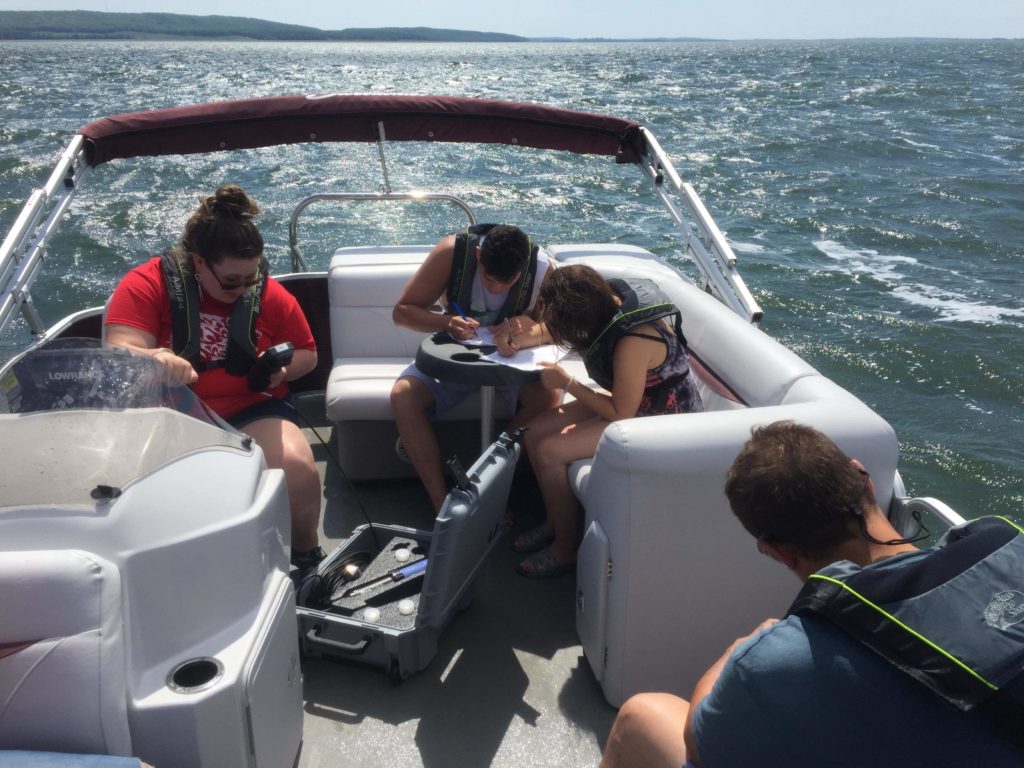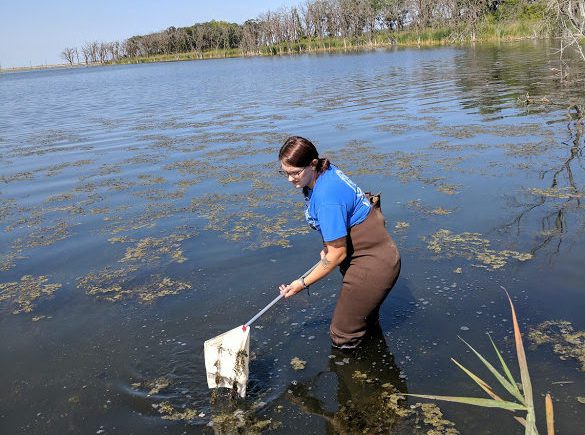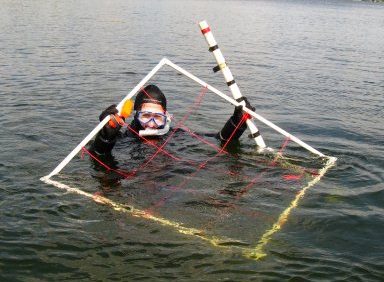
Natural Resource Management
The Associate of Science (AS) in Natural Resource Management provides a theoretical foundation that is enhanced by experiential and service learning opportunities. Essential study courses in communications, social sciences, mathematics, science and computer science, and Dakota Studies, provide the groundwork for the Natural Resource Management courses. The program is designed to expand students’ knowledge of their environment while recognizing the importance of policy, society, and economics in relation to caring for Unci Maka (Grandmother Earth).
Sovereignty of tribal nations falls within their existing land bases. The Dawes Act or General Allotment Act adopted by Congress in 1887 authorized the United States to divide Indian tribal land into allotments for individual Indians and to open up “excess” lands for non-Indian settlement. American Indians (AI) must become more knowledgeable in how national policy has affected tribal governments’ ability to govern and manage their natural resources. The AS in Natural Resource Management provides an academic base for those interesting in the importance of land and resource management among tribal nations.
Associate of Science in Natural Resource Management is designed to provide the basic knowledge, skills, and strategies to assist individuals or groups in realizing the importance of natural resource management in regard to guarding sustainable resources. Graduates have a solid and comprehensive education program based in science that allows for enhanced natural resource management activities as well as transfer to a four year program in a related field of study.

Rewarding

Professional

Hands-on

Experience
Courses of Essential Study
| Course # | Course Name | Offered |
Credits
|
|---|---|---|---|
| ENGL 100 | Student Success | FA,SP,SU |
1
|
| ENGL 110 | College Composition I | FA,SP,SU |
3
|
| ENGL 120 | College Composition II* | FA,SP |
3
|
| COMM 110 | Fundamentals of Public Speaking | FA,SP,SU | 3 |
| DS 110 | Dakota Culture and History | FA,SP,SU | 3 |
| ND:HUM or ND:FA or ND:HIST | 3 | ||
| SOC 110 | Introduction to Sociology | SP | 3 |
| ECON 201 | Principles of Microeconomics | FA | 3 |
| CSCI 101 | Introduction to Computers | FA,SP,SU | 3 |
| ND: MATH per advisor recommend | FA,SP,SU |
3
|
|
| BIOL 124 | Environmental Science | SP |
3
|
| BIOL 124L | Environmental Science Lab | SP | 1 |
| DSL 250 | Dakota Language I | FA,SP,SU |
3
|
| BIOL 150 | General Biology | 3 | |
| BIOL 150L | General Biology Lab | 1 | |
| TOTAL |
39
|
Core Classes
| Course # | Course Name | Offered |
Credits
|
|---|---|---|---|
| NAT 102 | Introduction to Natural Resource Management | FA,SP |
3
|
| NAT 297 | Natural Resources Internship**** | IND | 3 |
| Program Electives (choose from below) |
15
|
||
| TOTAL |
21
|
Program Electives
| Course # | Course Name | Offered |
Credits
|
|---|---|---|---|
| CHEM 115 | Introduction to Chemistry | SP |
3
|
| CHEM 115L | Introduction to Chemistry Lab | SP |
1
|
| CHEM 121 | General Chemistry I | FA |
3
|
| CHEM 121L | General Chemistry I Lab | FA |
1
|
| BIOL 151 | General Biology II | FA |
3
|
| BIOL 151L | General Biology II Lab | FA | 1 |
| BIOL 230 | Ecology (Nature Study)*** | FA,SU |
3
|
| BIOL 230L | Ecology (Nature Study) Lab*** | 1 | |
| CHEM 116 | Introduction to Organic and Biochemistry | FA | 3 |
| CHEM 116L | Introduction to Organic and Biochemistry Lab | FA | 1 |
| ENS 202 | Environmental Issues | SU |
3
|
| ENS 225 | Environmental Sampling*** | SP,SU | 3 |
| ENS 225L | Environmental Sampling Lab*** | SP,SU | 1 |
| ENS 299 | Topics in Agriculture/Natural Resources | FA |
3
|
| GEOL 102 | Historical Geology | SP | 3 |
| GEOL 102L | Historical Geology Lab | SP | 1 |
| GEOL 105 | Physical Geology | FA,SU | 3 |
| GEOL 105L | Physical Geology Lab | 1 | |
| GEOL 219 | Intermediate Geology***** | IND | 3 |
| GEOL 219L | Intermediate Geology Lab***** | 1 | |
| NAT 105 | Wildlife Identification | SP | 3 |
| NAT 105L | Wildlife Identification Lab | 1 | |
| NAT 215 | Plant Identification | FA | 3 |
| NAT 215L | Plant Identification Lab | 1 | |
| SOIL 210 | Soil Science | FA,SP,SU | 3 |
| SOIL 210L | Soil Science Lab | FA,SP,SU | 1 |
| SOIL 217 | Intro to Meteorology & Climatology | FA,SP |
3
|
| SOIL 264 | Natural Resource Management Systems | SP | 3 |
| * Prerequisite of ENGL 110 (College Composition I) | |||
| ** Prerequisite of ASC 093 (Intermediate Algebra) or Appropriate Placement Test | |||
| *** Prerequisite of MATH 103, Appropriate Placement Test, or MATH 210 AND instructor approval | |||
| **** To be taken at any time following the first year of coursework | |||
| ***** Prerequisite of GEOL 105 | |||
| ****** Prerequisite of ASC093 (Intermediate Algebra) or MATH 100 (Intro to Quantitative Reasoning) or instructor approval. | |||
Degree Program Total Credits…..60
Updated 10/02/24
• The student will demonstrate critical thinking skills in understanding natural resource problems.
• The student will develop practical skills in environmental science.
• The student will demonstrate technical skills in environmental monitoring/research.
• The student will understand the broad ethical considerations of natural resource management.
Median annual wage in May 2019 – $44,170 to $86,390 depending on specialty.
Job outlook 2019-29 4-11% as fast as average.
The Natural Resource Management faculty are professionals who have been employed in private and public sectors of education and business. They continue to participate in professional development and scholarly activity to enhance their knowledge and to serve as role models for lifelong learning.

Dr. Krystal Caldwell
krystal.caldwell@littlehoop.edu
701-766-2385

Douglas Cudworth
douglas.cudworth@littlehoop.edu
701-766-1346

